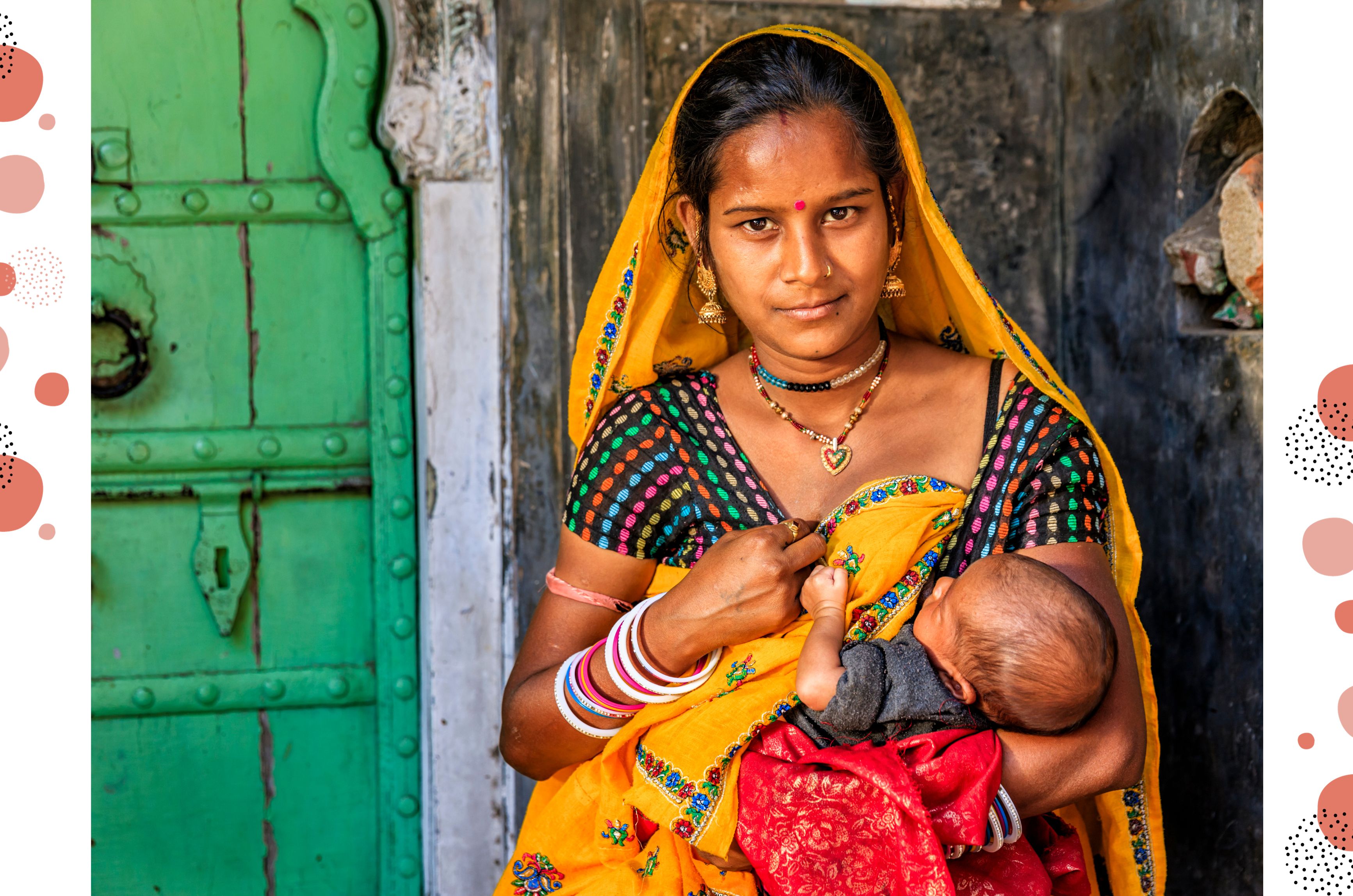
Parenting a newborn baby is quite delicate and requires consistent efforts. During the initial months, the mother and father have to be very careful about every detail. From the baby's food to sleep, everything should be in a certain way. Among all, breastfeeding is a must and a foundation step in taking care of a new baby.
Breastfeeding is a universally accepted form of maternal care for infants. But did you realize that breastfeeding practices across various cultures may vary tremendously? Let's take a trip through these illuminating customs and see how they contribute to our global community's richness and variety. This article will discuss the practice of breastfeeding and post-pregnancy diet in different corners of the world.

Breastfeeding is handled differently by Asian moms. Breastfeeding is seen as an integral component of motherhood in nations such as India, China, and Japan. When newborns are allowed to choose when they eat, it's called "baby-led breastfeeding." In India, mothers follow specialized diets to increase the nutritional density of their breast milk. Indian post-pregnancy diet is enriched with the blessing of Ayurveda which makes breastfeeding healthy for both mother and baby. Such diet majorly includes the Dana methi laddoo, Haldi ke laddoo, Makhna roasted, Sonth ke laddoo, Ajwain laddoo and Gond laddoo.

Breastfeeding is considered a family matter in Africa. Women's nursing knowledge is passed down through generations, from grandmothers to mothers to daughters. It's like learning a well-guarded secret! Breast milk, in their view, is infused with the power and knowledge of the ancestors, forging a bond between the newborn, the mother, and the family's past. With this practice, they make sure that standard knowledge is passed down through the generations and that women do not miss their post-pregnancy care.
Read also: Top 10 Foods to Avoid During Pregnancy for a Healthy Baby

Motherhood is a respected role in the Middle Eastern culture. Special events are held to honor nursing, and seasoned mothers often lend a hand to others who are just starting out. The welfare of the infant is prioritized above everything else, in their view. Breastfeeding mothers in the Middle East have little trouble doing so in public places.

Things have changed over time in Europe. More and more mothers are becoming aware of the many advantages of breastfeeding. Breastfeeding mothers may get a lot of help in several European nations. Lactation consultants are available to aid new mothers, and there are many businesses that welcome and encourage nursing.

Breastfeeding is handled differently in indigenous tribes. They saw it as a method to ensure the continuation of their culture, language, and affection. Babies are often fed by more than one mother at a time, a sign of how much the society values its youngest members. It also ensures the proper nourishment for the babies and contributes to their overall development. In some American societies, this custom is still in practice. This also strengthens the post-pregnancy health of new mothers.

It's vital to recognize that some mothers encounter significant obstacles even as we applaud these alternative approaches to nursing. Some cultural attitudes, a lack of resources, and a lack of access to healthcare may all make it more challenging. It is everyone's responsibility to ensure that mothers have access to the information and tools they need to make healthy decisions for their infants.
Breastfeeding is a beautiful bonding experience for mothers and their infants. Understanding and appreciating the variety of breastfeeding practices is a powerful approach to fostering a sense of community. Let's band together to make sure that every mother and child, no matter where they're from, lives in a safe and healthy environment. By working together, we can provide future generations with a world where they are loved, healthy, and understood.
If you are a new mother or going to give birth soon then it is quite important for you to be in good health for healthy breastfeeding. To make sure that the baby is receiving all the required nutrition, the mother must take their post-pregnancy diet on a serious note. In order to provide assistance to the mothers Nushka has brought a wide range of Indian traditional products for pregnancy care as well as post-pregnancy care. These products are prepared with the utmost care and Ayurveda method. You will get these products made of pure ingredients.
Read also: Revitalize and Reenergize: Women's Health Nutrition for Every Life Stage
Culture has a big influence on how people see breastfeeding. It moulds the conventions, behaviours, and beliefs around this organic occurrence. For instance, nursing may be seen as a private affair in certain cultures and as a social activity in others.
Raising awareness about breastfeeding involves education and open conversations. Conducting workshops, sharing informative pamphlets, and organizing community events can help dispel myths and provide crucial information about the benefits of breastfeeding for both mothers and infants.
There are several techniques we can put into practice to encourage breastfeeding in our community. It is essential to provide supportive surroundings in public areas, businesses, and healthcare institutions. Positive effects can be achieved by providing lactation resources, setting up support groups for nursing mothers, and enlisting local authorities in advocacy campaigns.